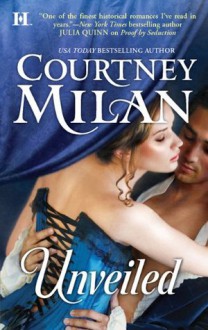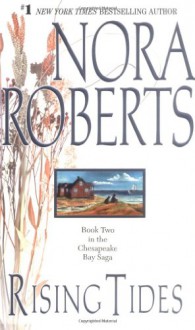
Courtney Milan is easily, far and away, my favorite author of historical romance. She has a graduate degree in theoretical physical chemistry from UC Berkeley and graduated summa cum laude from law school at the University of Michigan, and after clerking for important judges and teaching law for awhile, she now spends her time writing the smartest, beautifully-plotted, emotionally-rich, gorgeously-written historical romance I've ever read. I live in wait for her books, and in between new releases, I re-read what she's written before. This week, I re-read Unveiled for the third time, and if you've never read it, get it and put it right at the top of your TBR pile right now.
Unveiled is the first book of the Turner trilogy, which tell the stories of the Turner brothers, three brilliant men who have risen from modest beginnings to the top of Victorian English society despite a tortured childhood. After the death of their father, their pious-to-the-point-of-insanity mother gave everything the family had to the Church, leaving herself and her four children with nothing. When the only daughter, Hope, became sickened after a rat bite, the oldest child, Ash, walked twenty miles in order to beg the Duke of Parford (a distant relation) for enough money to hire a doctor to treat her. Parford only gave him a coin with which to buy himself a bath, the sister died, and Ash grew up determined to avenge this injustice.
When Unveiled begins, Ash is on the cusp of accomplishing that revenge. He has discovered that Parford secretly married his mistress before he married the mother of his children. By unveiling (note this word: it's the book title for a reason) the duke's bigamy, Ash has had that second marriage nullified, Parford's children declared bastards and stripped of their inheritance, and himself installed as heir-apparent to the ailing duke. Parford's grown children, the Dalrymples, will lose everything unless they can convince Parliament to pass a rare act re-legitimizing them and restoring their inheritance.
Ash and his youngest brother, Mark, go to Parford Manor to examine the estate. Ash believes that the Dalrymples are not in residence, but in fact the duke's daughter, Margaret, is posing as a lowly servant in order to keep an eye on the Turners and report back to her absent brothers.
At its core, this is a book about the layers of loyalty (and disloyalty), trust (and mistrust), and love (and enmity) that make up relationships and the way these layers obscure the characters' ability to see one another and, sometimes, themselves. Over and over again, characters mistake one another. Ash mistakes Margaret for a servant because she masquerades as a servant, but many of the mistakes are not as straight-forward. For example, Ash's brothers don't understand him because they are men of learning while Ash is a man of instinct and charisma; they don't realize that Ash doesn't mean to be dismissive of their intellectual pursuits, but being dyslexic, he can't read Mark's book or share Smite's study of the law. In another instance, Ash is stung (and Margaret is offended on his behalf), when Smite comes to Parford Manor and seems to snub Ash, but it turns out that, though he and Ash can't show each other their true feelings, Smite is motivated by love and concern for Ash rather than malice.
Although Ash and Margaret are set up as antagonists (in that Ash's success is literally Margaret's ruin), they bond because they are the same: both fiercely loyal to and devoted to their families, even though that devotion isn't requited (or in Ash's case, doesn't appear to be requited). Margaret's father is cruelly dismissive of her; her brothers are, at best, benignly inattentive to her situation, and at worst, cravenly unconcerned. Similarly, everything Ash does is motivated by love for his brothers, but Mark and Smite lived through childhood tragedies while Ash was in India (making a fortune in order to save them from poverty) and share a love of learning, and the two younger brothers share a bond that, intentionally or not, sets Ash forever apart.
"You see?" Ash said in his cheeriest tone. "My brothers are both here. What could I possibly have to grieve over?"
"You're not grieving," Margaret said. "I know that look on your face."
"Do you then?" He asked the question out of genuine interest. He'd not been faced with both his brothers before this moment. How could she possibly have seen it?
"Intimately." Her voice was low. "I know what it's like to stand on the outside and look in, believing I will never be accepted. I know what it's like to yearn to be a part of something, and yet to know that it will never come. Trust me, Ash. I know."
(p. 214) Ultimately, it is this sense of being outsiders to all others that allows Ash and Margaret to come together when all rational thought should keep them apart: they each crave acceptance and find it, not with their families, but with each other.


 Log in with Facebook
Log in with Facebook 









